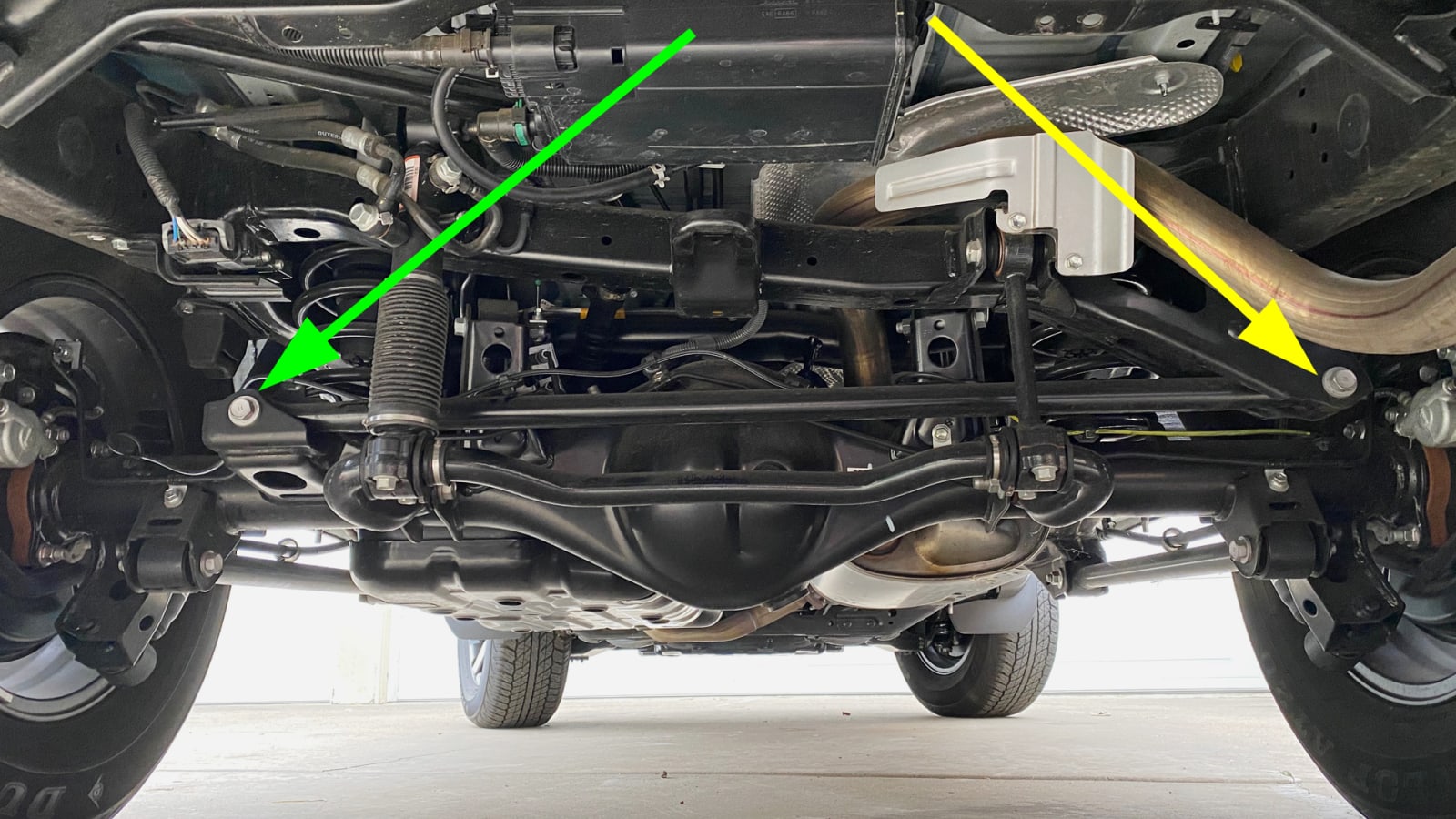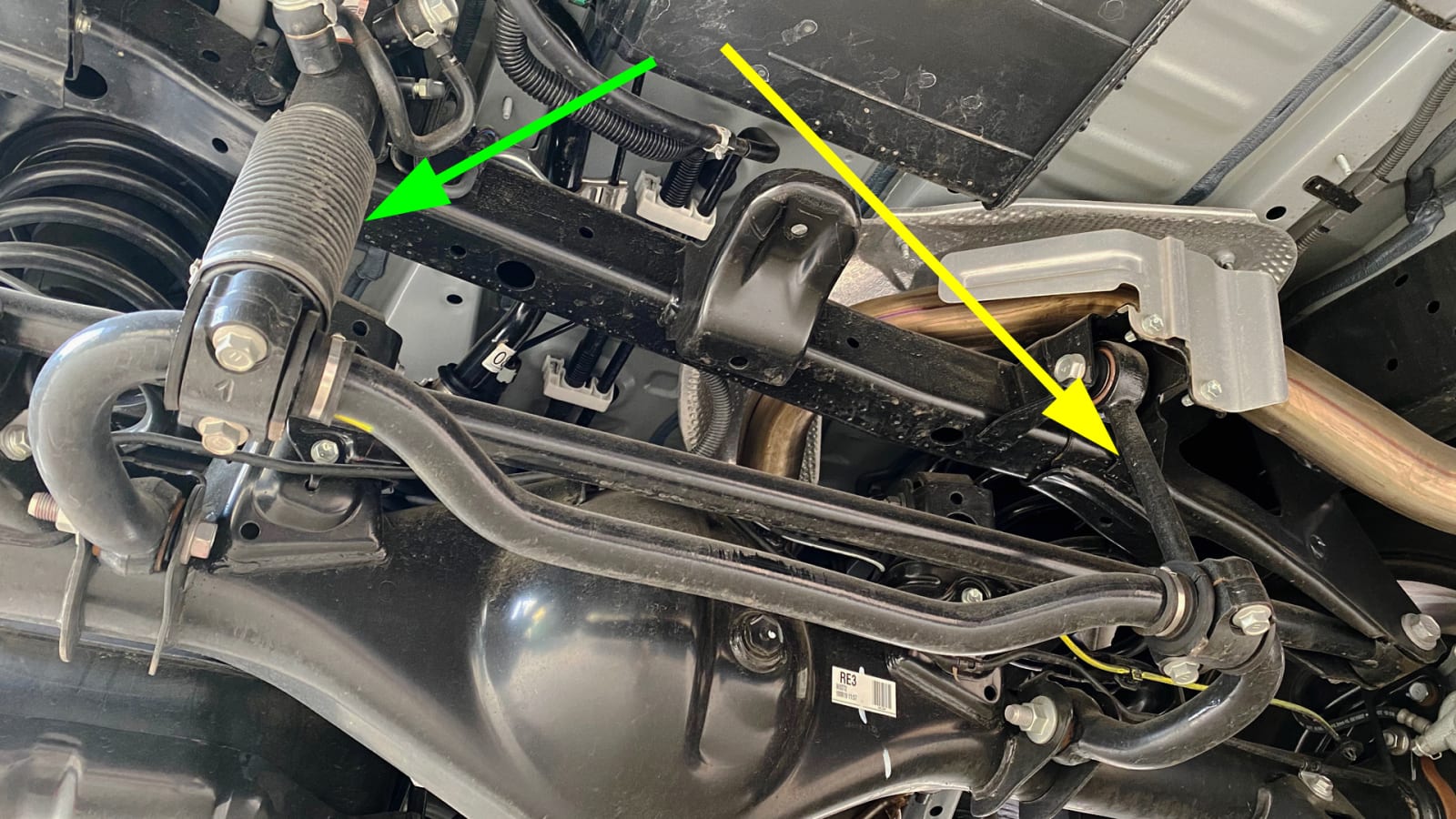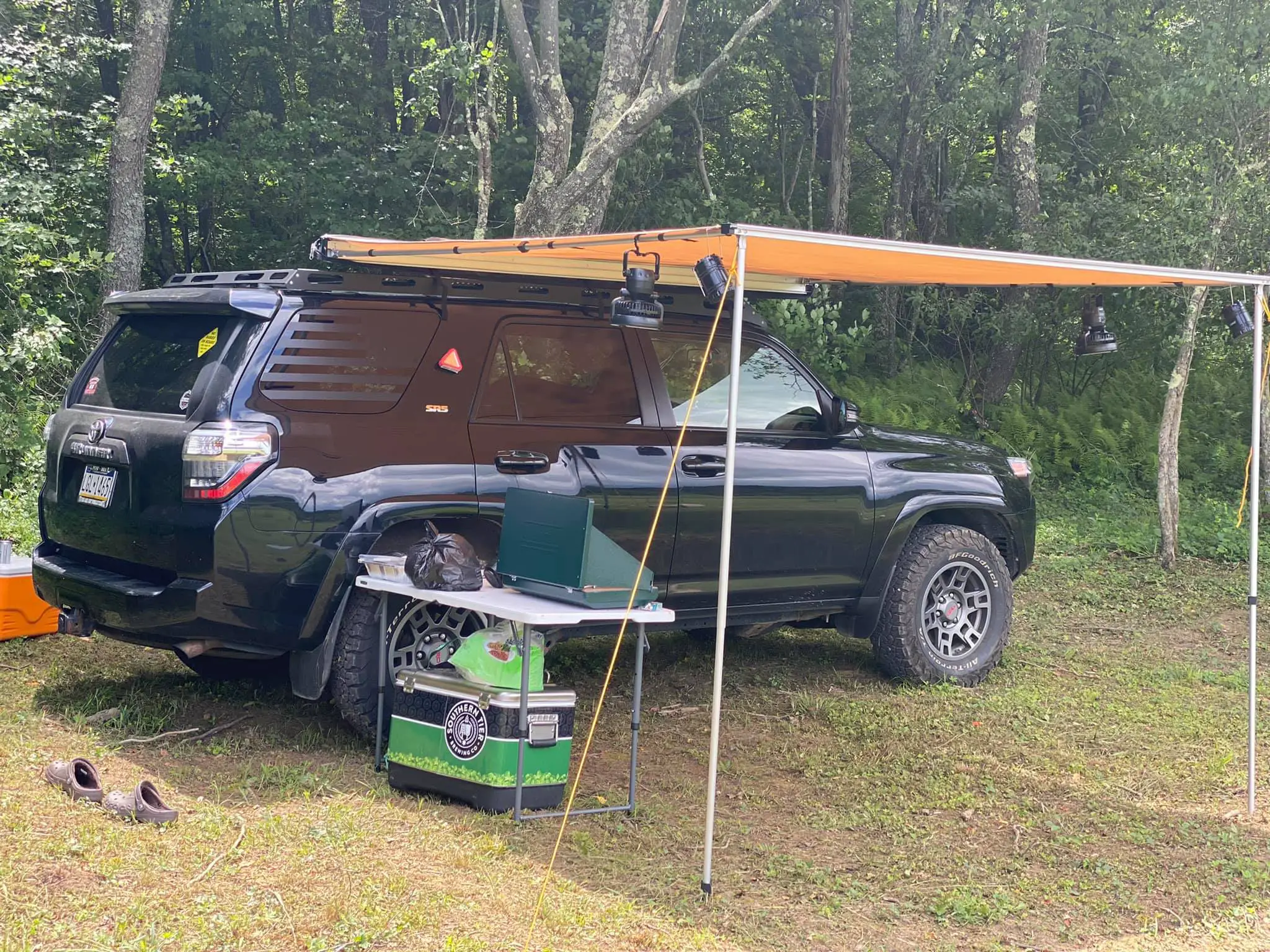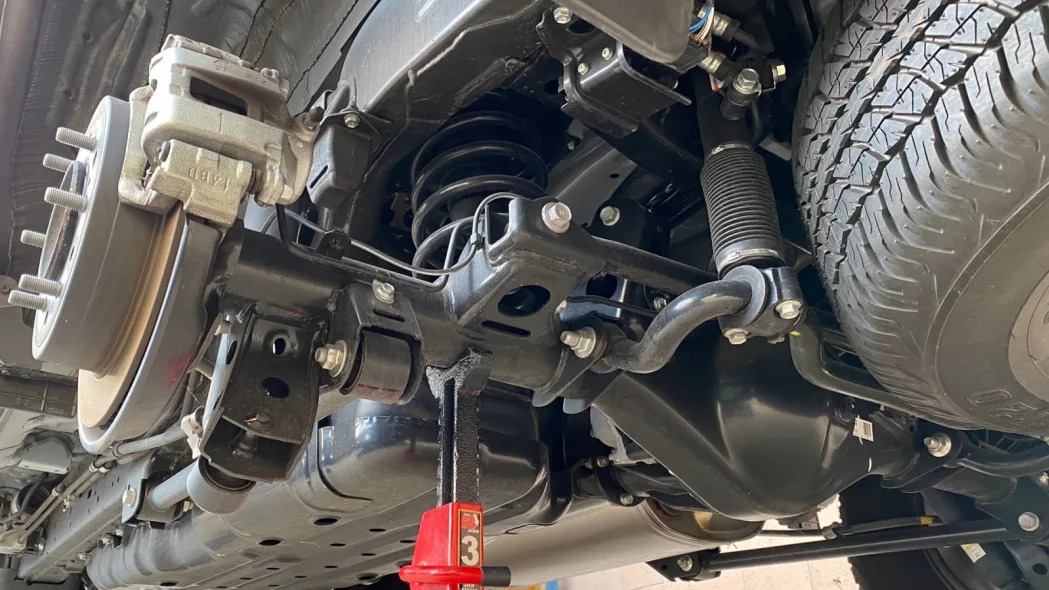The Toyota 4Runner With KDSS: A Comprehensive Guide
The Toyota 4Runner with KDSS: A Comprehensive Guide
Related Articles: The Toyota 4Runner with KDSS: A Comprehensive Guide
Introduction
With enthusiasm, let’s navigate through the intriguing topic related to The Toyota 4Runner with KDSS: A Comprehensive Guide. Let’s weave interesting information and offer fresh perspectives to the readers.
Table of Content
The Toyota 4Runner with KDSS: A Comprehensive Guide

The Toyota 4Runner, renowned for its rugged durability and off-road prowess, offers a unique and highly sought-after feature: the Kinetic Dynamic Suspension System (KDSS). This sophisticated system significantly enhances the vehicle’s handling and off-road performance, making it an attractive option for discerning drivers seeking a blend of comfort, capability, and control. This article delves into the intricacies of the 4Runner with KDSS, exploring its features, benefits, and considerations for potential buyers.
Understanding the KDSS System
KDSS is a hydraulically actuated system that actively controls the sway bars connected to the front and rear axles. In essence, it dynamically adjusts the stiffness of the sway bars based on driving conditions, optimizing both on- and off-road performance.
How KDSS Works
At its core, KDSS utilizes hydraulic cylinders connected to the sway bars. When the vehicle encounters a corner or uneven terrain, the system automatically adjusts the hydraulic pressure within these cylinders. This adjustment effectively reduces the sway bar’s stiffness, allowing for increased wheel articulation and improved off-road traction.
Benefits of the KDSS System
The integration of KDSS in the 4Runner brings about a multitude of advantages:
-
Enhanced Handling: KDSS significantly improves the vehicle’s handling characteristics, particularly when cornering. By reducing body roll, it provides a more stable and predictable driving experience, enhancing driver confidence.
-
Improved Off-Road Capability: The system’s ability to disconnect the sway bars allows for greater wheel articulation, enabling the 4Runner to navigate challenging terrain with ease. This increased articulation helps maintain contact between tires and the ground, maximizing traction and minimizing wheel slip.
-
Increased Comfort: The reduced body roll and improved ride quality resulting from KDSS contribute to a more comfortable driving experience, even on rough roads. This is particularly beneficial for passengers, who will appreciate the smoother ride.
-
Enhanced Safety: KDSS plays a crucial role in enhancing safety by maintaining vehicle stability in various driving scenarios. The system’s ability to reduce body roll and improve traction contributes to a more controlled and predictable driving experience, minimizing the risk of accidents.
Considerations for Buyers
While KDSS offers numerous advantages, there are a few factors to consider before purchasing a 4Runner equipped with this system:
-
Cost: 4Runners with KDSS typically command a higher price than their non-KDSS counterparts. This is due to the added complexity and sophistication of the system.
-
Maintenance: The hydraulic components of KDSS require periodic maintenance, such as fluid changes and inspections, to ensure optimal performance.
-
Availability: KDSS was not standard on all 4Runner models, and its availability varied depending on the year and trim level. It’s essential to confirm the presence of KDSS before purchasing a used 4Runner.
Frequently Asked Questions (FAQs)
Q: What is the lifespan of a KDSS system?
A: With proper maintenance, a KDSS system can last for the lifetime of the vehicle. Regular fluid changes and inspections are crucial to ensure its longevity.
Q: Can I add KDSS to my 4Runner if it doesn’t have it?
A: Retrofitting KDSS to a 4Runner is not a straightforward process and is generally not recommended. The system’s integration requires significant modifications to the vehicle’s suspension and chassis.
Q: How do I know if my 4Runner has KDSS?
A: The presence of KDSS can be identified by looking for the following:
* A sticker on the driver's side door jamb indicating "KDSS"
* A small, black box located near the front suspension, typically on the driver's side
* A hydraulic line running from the KDSS box to the front sway barTips for Buying a 4Runner with KDSS
-
Thorough Inspection: Before purchasing a 4Runner with KDSS, have a qualified mechanic inspect the system for any leaks, damage, or signs of wear.
-
Service Records: Request service records from the seller to ensure that the KDSS system has been properly maintained.
-
Test Drive: Take the 4Runner for a test drive on both paved and unpaved roads to experience the benefits of KDSS firsthand.
Conclusion
The Toyota 4Runner with KDSS represents a unique blend of off-road capability, on-road comfort, and advanced technology. Its ability to dynamically adjust suspension stiffness provides a significant advantage in various driving conditions, enhancing both performance and safety. While the system does come with a higher price tag and requires maintenance, the benefits it offers make it a compelling choice for drivers seeking a versatile and capable SUV. By understanding the intricacies of KDSS and considering its advantages and potential drawbacks, prospective buyers can make an informed decision that aligns with their individual needs and preferences.








Closure
Thus, we hope this article has provided valuable insights into The Toyota 4Runner with KDSS: A Comprehensive Guide. We appreciate your attention to our article. See you in our next article!
You may also like
Recent Posts
- The 2025 Toyota 4Runner: A Legacy Reimagined
- The Enduring Appeal Of The Toyota 4Runner Manual Transmission 4×4
- The Toyota 4Runner TRD Off-Road: A Legacy Of Adventure, Reimagined For 2025
- The Anticipation Builds: Unveiling The Next Generation Toyota 4Runner
- The 2025 Toyota 4Runner TRD: A Legacy Of Adventure Reimagined
- The Future Of Color: Exploring The Significance Of Color Trends
- The Toyota 4Runner: A Legacy Of Capability, Now With Expanded Seating
- The Toyota 4Runner Timing Belt: A Vital Component For Engine Longevity
Leave a Reply